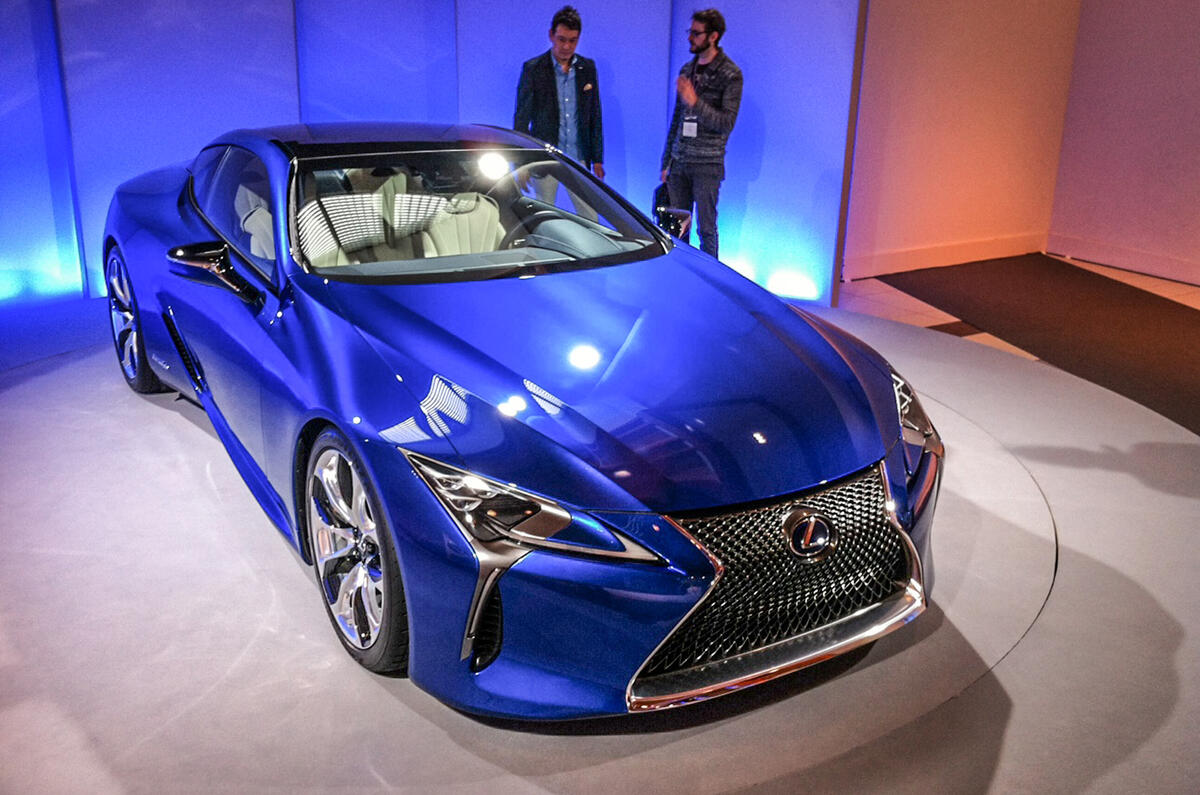They say you always remember the days when something that was once baffling suddenly starts to make sense - and the Lexus LC500h's recent unveiling may just have been one of them.
The showcasing of the firm's Geneva motor show star was, on paper, innocuous in many ways - a hybrid derivative of 2+2 coupé that was shown with a V8 not long before wouldn't usually make me go wow.
But first the car did just that, and then the powertrain and then the good-natured confidence of the engineering brain and designer behind the car, respectively Koji Sato and Tadao Mori, made me appreciate it even more.
Unquestionably, for me, this was the moment Lexus's wilfully more challenging design direction finally made sense, from the once forced-looking spindle grille to the still fussy but also jaw-dropping flourishes that abound. It is possible that this is car specific - a sports-orientated coupé is always a step or two ahead of a small premium hatch in my affections, but I also suspect that the LC500h has the potential to make me look again at the rest of Lexus's redesigned range with a more open mind.
The powertrain, meanwhile, is as mind-boggling as it is simple, in some respects bolting together the established technologies of an automatic gearbox and hybrid CVT and in others breaking the mould. If it can achieve its stated goal of ending the days of CVTs delivering a feeling of being powered by a rubber band, matching revs to inputs seamlessly so there's always torque when you want it, it promises to be a significant stride forward.
And so to Sato and Mori, two men clearly in love with their jobs and able to explain as complex tasks as making Lexuses drive well and carry a look that is loved by some and offensive to others as if it is run-of-the-mill stuff. Not for these two the inscrutable blocking of any questions - they spoke with pride on the goals, challenges and future potential of the project, and conveyed a confidence that could only reflect well on the car they have created. Only a test drive will prove it, but thanks to them the anticipation for the mid-2017 launch is building nicely.
From a sales point of view, Lexus is having a rum old time of it now, albeit from a relatively low base. Last year it sold 652,000 cars, up 12% year-on-year. Europe is a relatively small part of that story - Lexus hopes to sell more than 70,000 cars here in 2016, building to 100,000 by 2020 - but there is clearly momentum behind the brand.






Add your comment